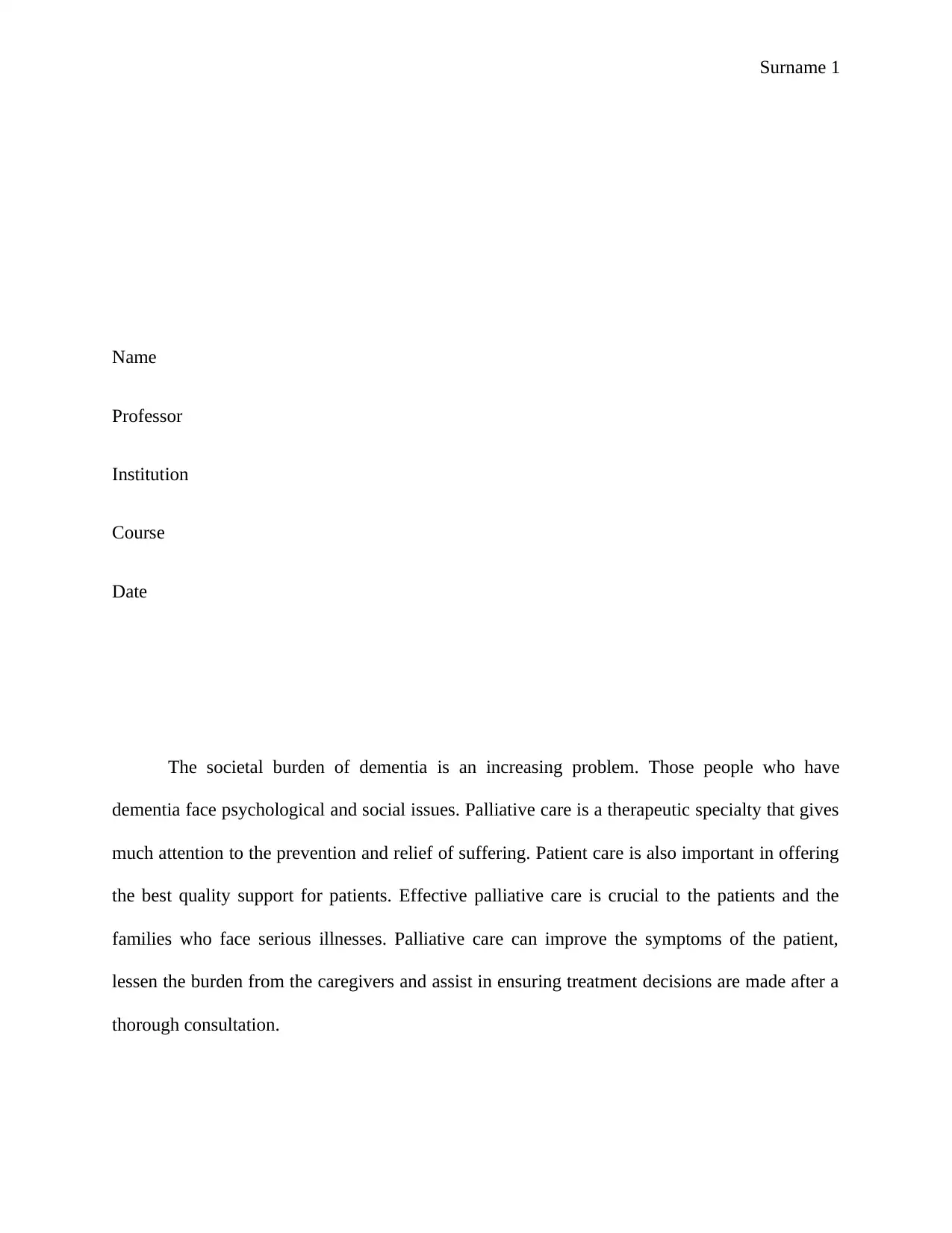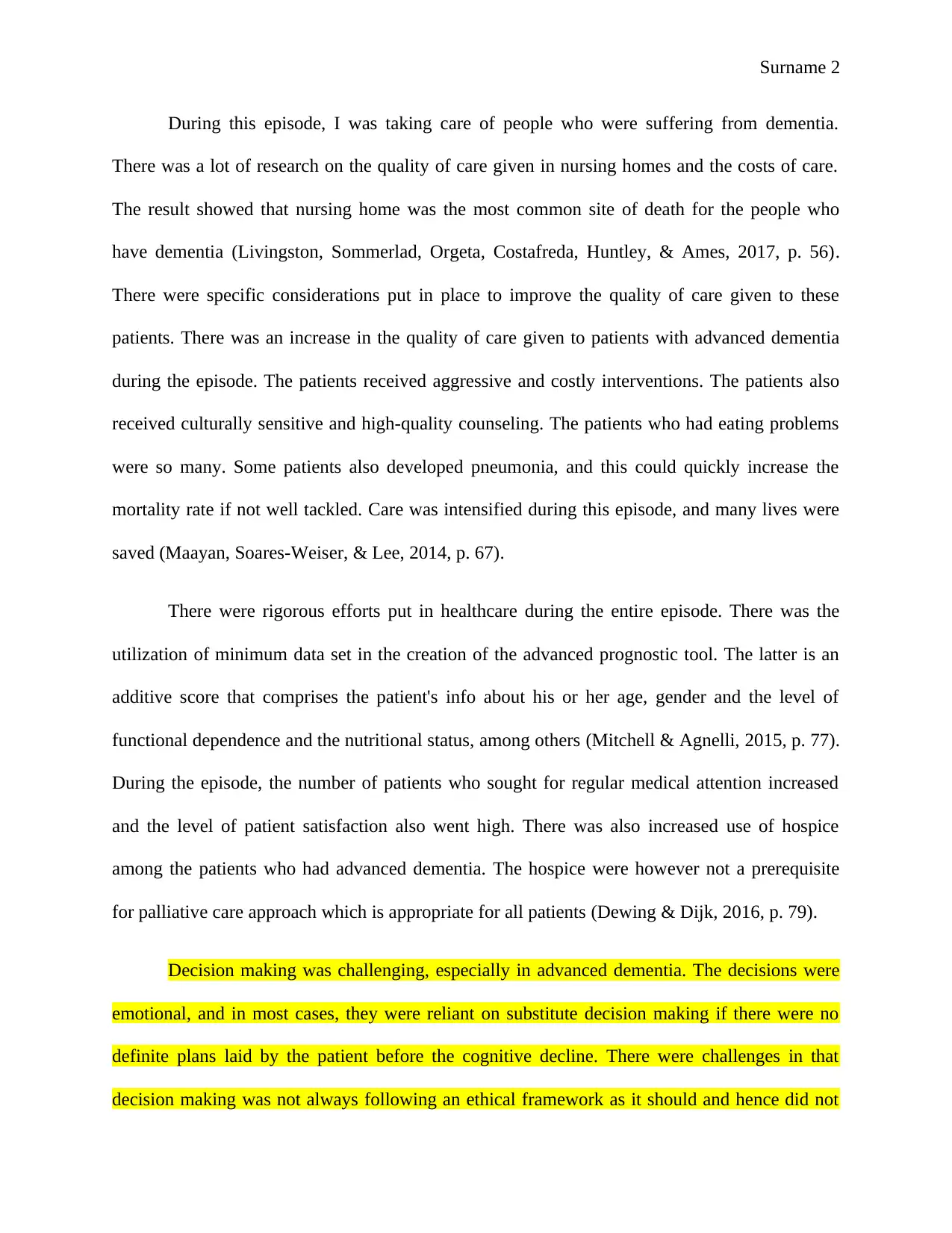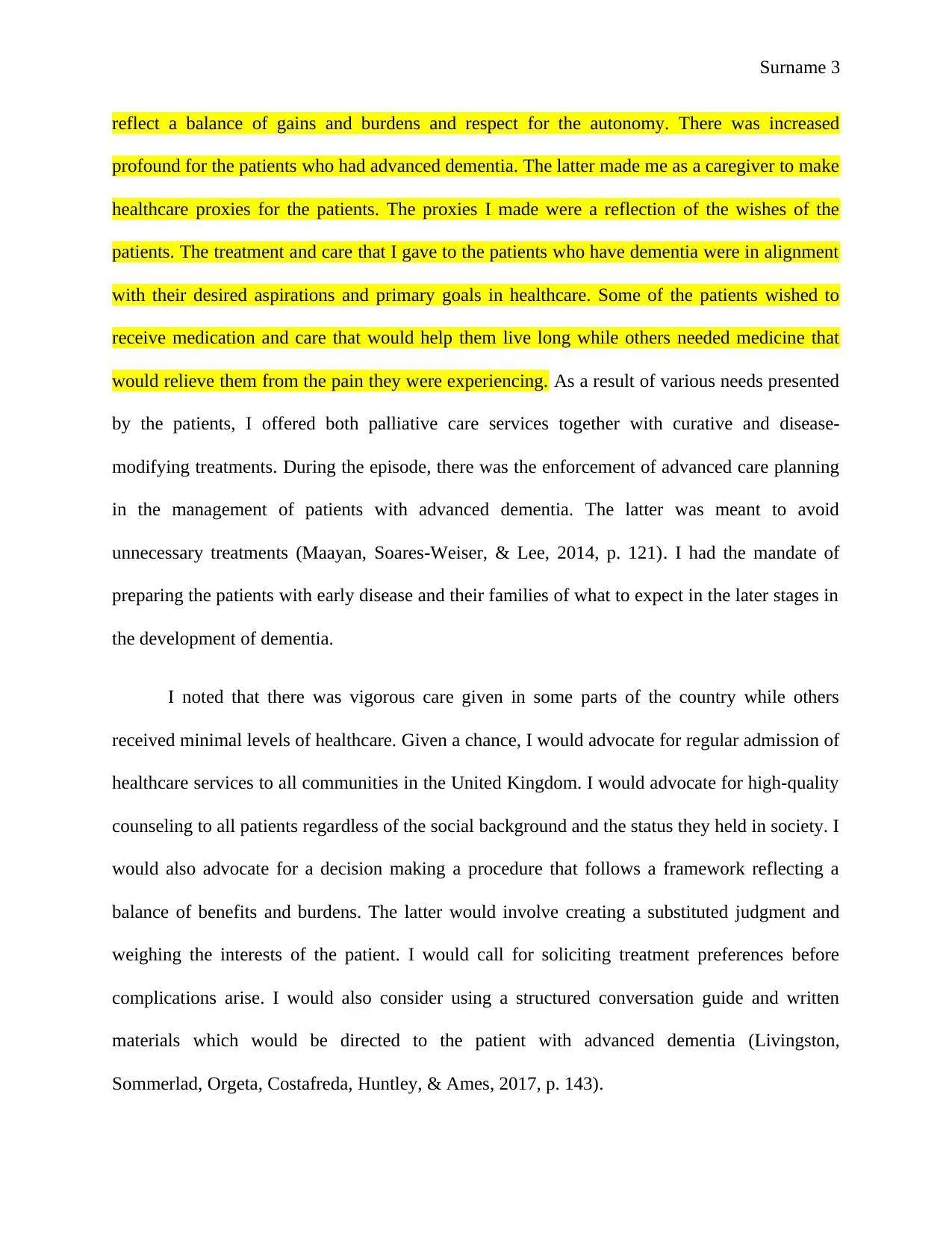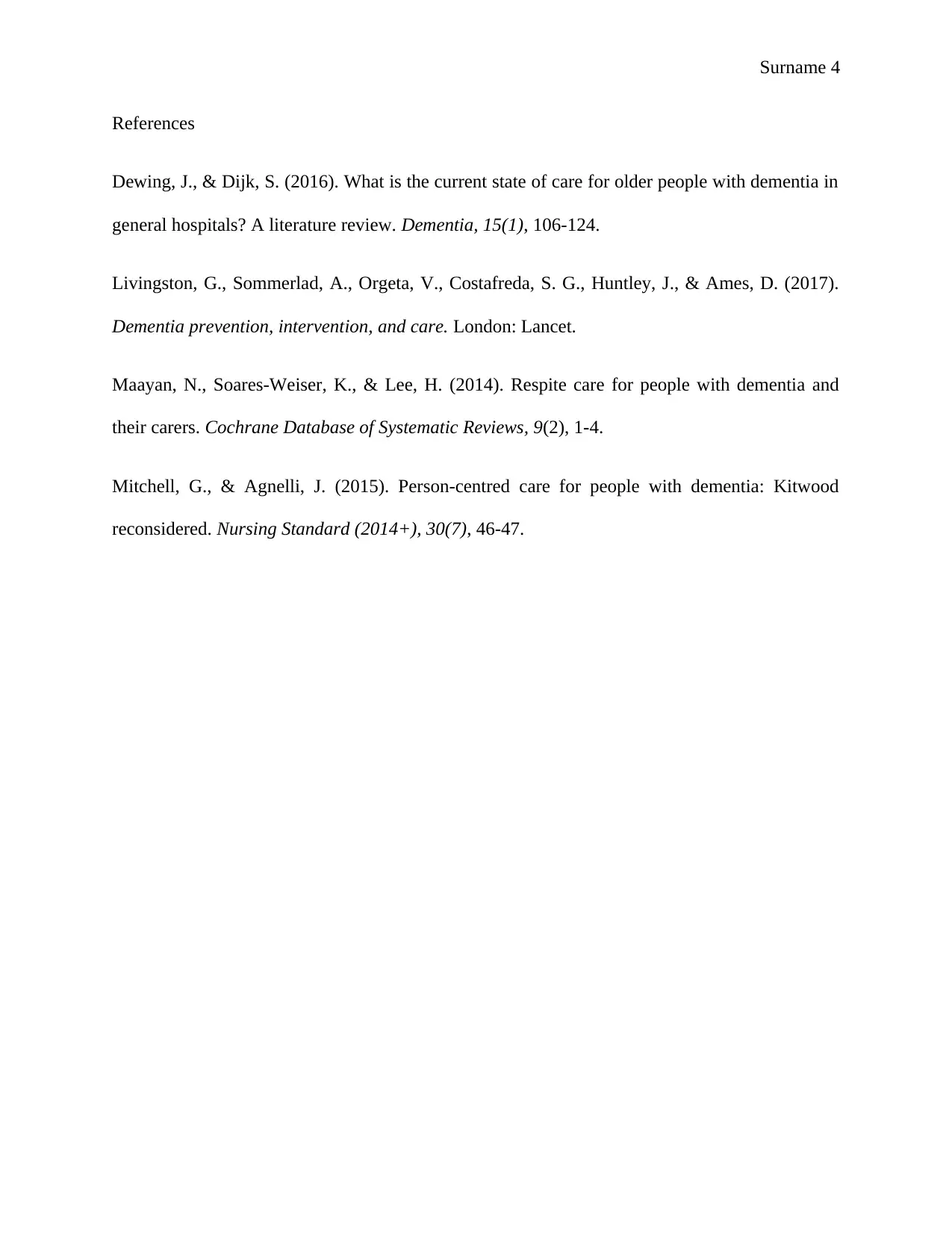Reflection on Dementia Care: Challenges, Strategies, and Outcomes
VerifiedAdded on 2022/10/10
|4
|1018
|444
Journal and Reflective Writing
AI Summary
This reflective assignment discusses the increasing societal burden of dementia and the psychological and social issues faced by patients. The author reflects on their experience caring for dementia patients, highlighting the importance of palliative care in improving patient symptoms, reducing caregiver burden, and ensuring informed treatment decisions. The reflection covers various aspects of patient care in nursing homes, including the use of advanced prognostic tools, increased patient satisfaction, and the challenges of decision-making, especially when ethical frameworks are not strictly followed. The author emphasizes the need for advanced care planning, advocacy for high-quality counseling, and a decision-making procedure that balances benefits and burdens. The reflection concludes with a call for regular access to healthcare services, regardless of social background, and the utilization of structured conversation guides and written materials for patients with advanced dementia. The assignment references several research studies to support the observations and arguments made.
1 out of 4











![[object Object]](/_next/static/media/star-bottom.7253800d.svg)